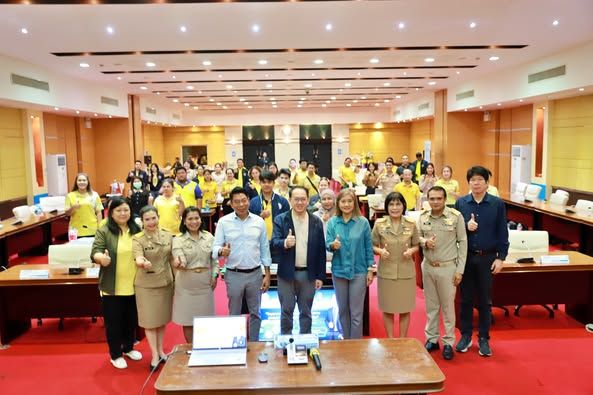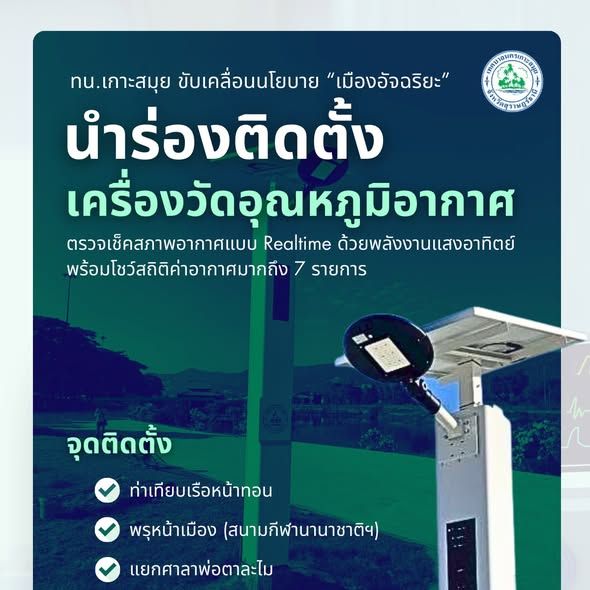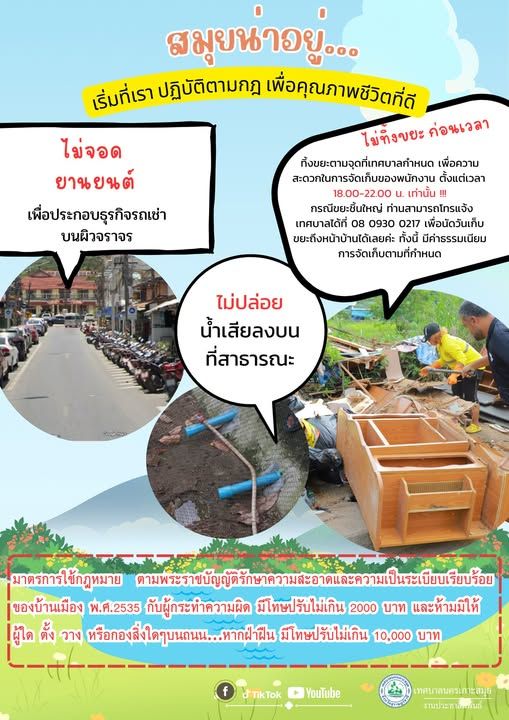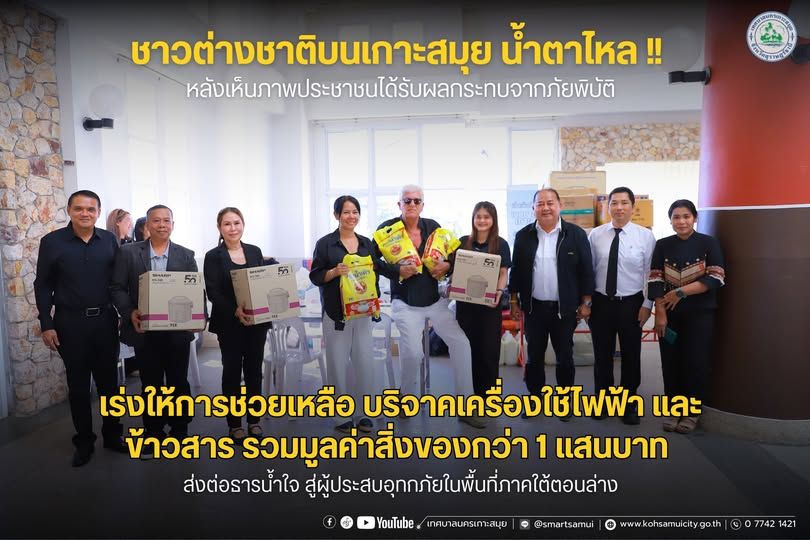Koh Samui Municipality is embracing digital innovation with a groundbreaking AI training program for 39 ICT personnel, led by Deputy Mayor Supinya Srithongkul and Dr. Kittipong Suwanrach. The “Artificial Intelligence for Professional Smart Officers” workshop marks a significant step towards transforming local government services and enhancing technological efficiency.
KohSamui #DigitalTransformation #AIInnovation #SmartGovernment #ThailandTech #PublicSectorInnovation #DigitalGovernment #TravelThailand #TechTourism
Overview of the Training Initiative
On March 17, 2025, Koh Samui Municipality launched a specialized training project aimed at advancing the capacity and skills of its ICT personnel. Held at the Phet Samui Meeting Room within the municipality office, the event marked a significant step in the ongoing development of professional municipal staff, focusing particularly on the integration of artificial intelligence (AI) into public administration.
Leadership and Organization
The opening ceremony was led by Ms. Supinya Srithongkul, Deputy Mayor of Koh Samui Municipality. The event brought together the executive committee, deputy municipal clerks, departmental heads, municipal staff, and other key officials. The training session was facilitated by Assistant Professor Dr. Kittipong Suwanrach from the Information Technology Program at Pibulsongkram Rajabhat University’s Faculty of Science and Technology.
Training Focus: Artificial Intelligence for Professional Smart Officers
This year’s capacity development project was themed “Artificial Intelligence for Professional Smart Officers.” It was designed specifically for 39 selected ICT personnel from the municipality, forming a core group to pioneer digital transformation within local government operations.
Course Objectives
The training was structured to:
– Equip participants with foundational and advanced knowledge of artificial intelligence.
– Enable personnel to apply AI skills in their daily work and in the delivery of public services.
– Foster a culture of innovation and digital literacy among municipal staff.
Alignment with National Policy: Thailand 4.0 and Digital Government
This initiative is part of a broader strategy to support the national vision of “Thailand 4.0,” which emphasizes economic transformation through technology and innovation. By upskilling municipal personnel, the project contributes to the realization of a “Digital Government”, where digital technologies—including AI—are integrated into government administration and the provision of public services.
Benefits and Expected Outcomes
The adoption of artificial intelligence in municipal operations is anticipated to yield several benefits:
– Enhanced Efficiency: AI can streamline administrative processes, reducing unnecessary steps and optimizing resource usage.
– Improved Accuracy: Automated systems help minimize human errors and provide more reliable outputs.
– Faster Service Delivery: Digital solutions can shorten response and processing times, making municipal services more accessible and convenient.
– Resource Conservation: By optimizing operations, the municipality can allocate resources more effectively.
– Increased Public Satisfaction: Faster, more accurate, and user-friendly services are expected to improve the experience for local residents.
Training Methodology
The course was specially tailored to balance theoretical learning with practical application. Participants engaged in:
– Interactive lectures covering AI principles, ethics, and real-world use cases.
– Hands-on workshops where they could experiment with AI tools and develop small-scale projects.
– Group discussions to encourage the exchange of ideas and collaborative problem-solving.
Broader Implications for Municipal Governance
Empowering ICT personnel with AI expertise is crucial for modernizing local governance. Through initiatives such as this, Koh Samui Municipality is positioning itself as a leader in digital transformation among local government entities. The skills acquired by participants are expected to have a multiplier effect, as digital practices and innovations disseminate across departments and services.
Community Engagement and Transparency
The municipality has made efforts to keep the public informed and engaged by sharing event details and photos. This transparency helps build trust and demonstrates the administration’s commitment to modernization and continuous improvement.
Additional Resources
Interested individuals can view a gallery of event photos and highlights here, offering a closer look at the training activities and participants’ experiences.
Frequently Asked Questions
“`markdown
FAQ: Capacity Development and AI Skill Enhancement for ICT Personnel in Koh Samui Municipality
How does the AI training initiative support Koh Samui Municipality’s digital transformation goals?
The “Artificial Intelligence for Professional Smart Officers” training is a strategic move to advance Koh Samui Municipality’s digital transformation. By upskilling 39 ICT personnel in AI technologies, the municipality is aligning with Thailand’s national “Thailand 4.0” policy, which emphasizes technological innovation in the public sector. The initiative aims to streamline administrative processes, enhance accuracy, and deliver faster, more efficient public services—ultimately leading to a smarter, more responsive local government.
What skills and knowledge are ICT personnel gaining through this program?
Participants are being equipped with both foundational and advanced knowledge of artificial intelligence, including its principles, ethical considerations, and real-world applications. The training balances theory with practice: ICT staff engage in interactive lectures, hands-on workshops, and group discussions. This structure enables them to apply AI tools in daily work, foster innovation, and develop practical solutions for municipal challenges, thus enhancing overall service quality.
What are the expected long-term benefits of adopting AI in municipal operations?
Introducing AI to municipal operations is expected to bring multiple long-term benefits:
– Increased efficiency: Streamlined procedures reduce administrative bottlenecks.
– Improved accuracy: Automation minimizes human error and ensures reliable outcomes.
– Faster service delivery: Digitalization accelerates response times for citizens.
– Better resource allocation: Optimized operations free up resources for other initiatives.
– Greater public satisfaction: Residents enjoy more convenient, transparent, and accessible services.
Additionally, empowering ICT personnel with these skills has a multiplier effect, spreading digital literacy and innovation throughout the municipality and setting a model for other local governments.
“`




